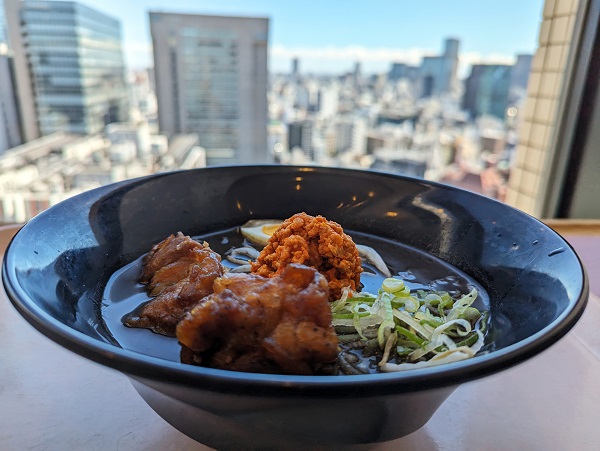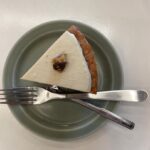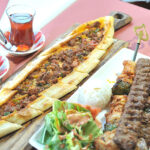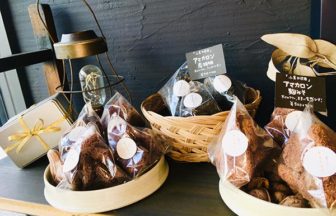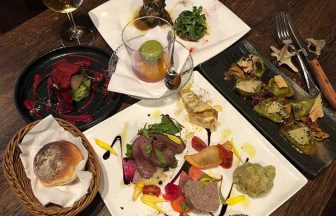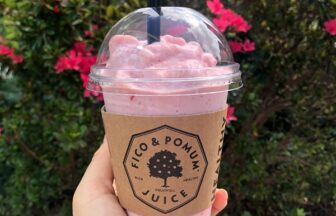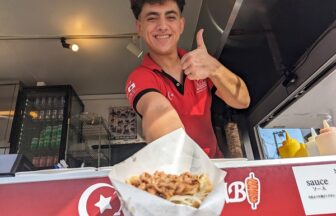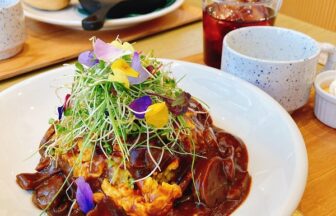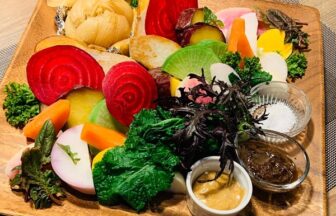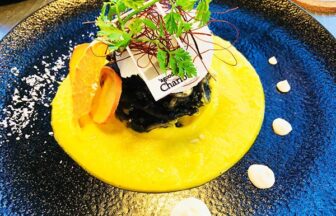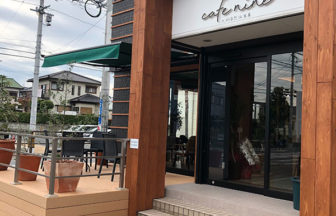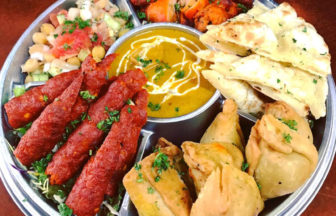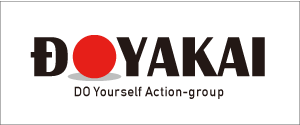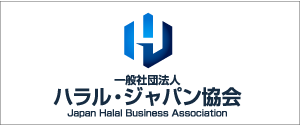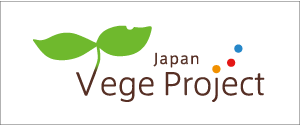Enjoy the view of Mt. Fuji from 75 meters above ground! Sky Lounge Akatsuki on the 17th floor of Liberty Tower on the Surugadai Campus
Sky Lounge Akatsuki is a cafeteria located on the 17th floor of Liberty Tower on Meiji University’s Surugadai Campus. Affectionately known as the “Shidei Shokudo,” this 80-year-old student cafeteria offers healthy options using tofu and vegetables, as well as weekly rotating Japanese, Western, and Chinese dishes. It aims to be affordable, delicious, and filling, catering to growing students.
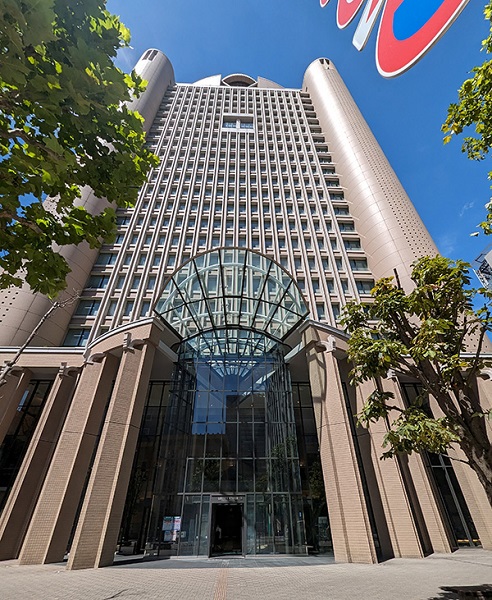
Exterior
In fact, this cafeteria is a rare opportunity to enjoy authentic ramen created by Menya Honoru at school cafeteria prices. Menya Honoru, a ramen shop famous for its chicken broth with its main store in Ebisu, is a popular halal ramen shop among Muslims. In recent years, the company has also been providing consulting and product development services for school cafeterias and employee cafeterias. While traditional ramen requires hours of simmering, the restaurant has developed a cafeteria-specific recipe that allows anyone to easily prepare authentic ramen, making it affordable even for halal ramen.
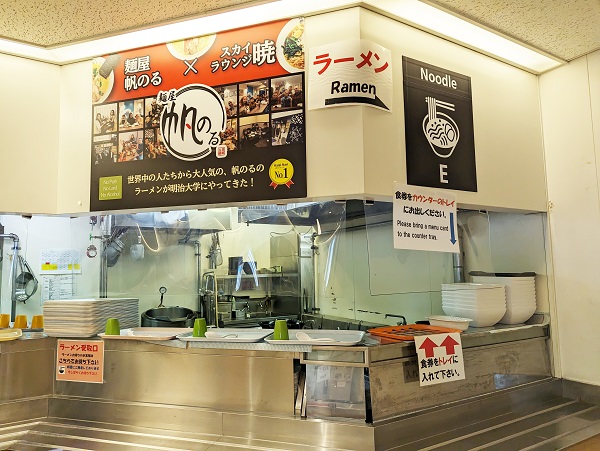
Ramen Corner
All ramen at Sky Lounge Akatsuki is “pork-free” and “alcohol-free.” To ensure greater accessibility to a wider range of customers, including Muslims, the restaurant received halal certification in April 2023. Currently, the ramen menu offers four types: miso, soy sauce, tanmen, and black sesame dandan noodles.
The soy sauce ramen, made with alcohol-free halal soy sauce, is only 450 yen! It features large fried halal chicken topped with a runny boiled egg, bean sprouts, wakame seaweed, and green onions. This ramen is popular for its light, traditional flavor.
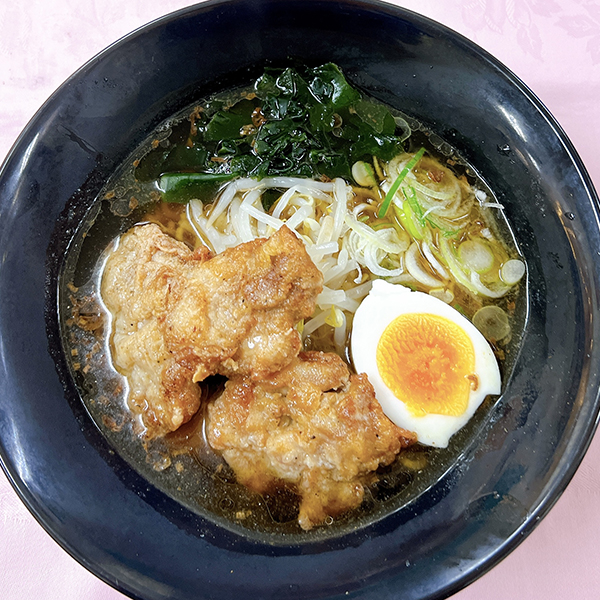
Soy Sauce Ramen
This delicious miso ramen combines the sweetness of sweet corn with the rich flavor and aroma of miso and chewy noodles. It’s perfect for Muslims and everyone in between.
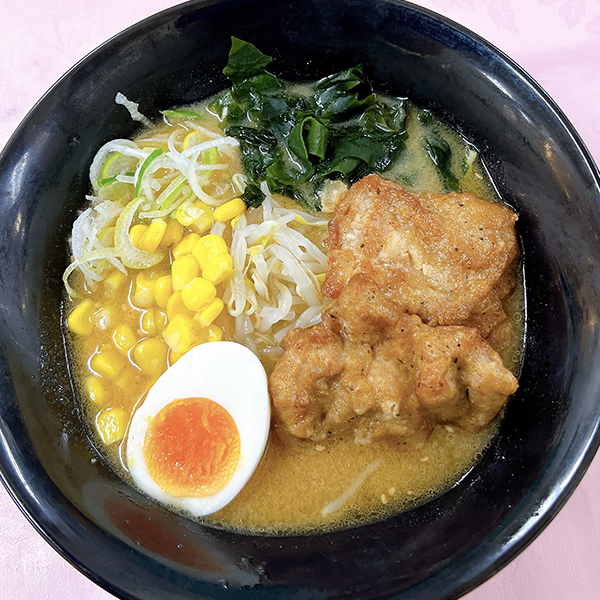
Miso Ramen
Tanmen is popular for its healthy, salty flavor and plenty of vegetables. Its rich ingredients and light aftertaste make it popular with people of all ages.
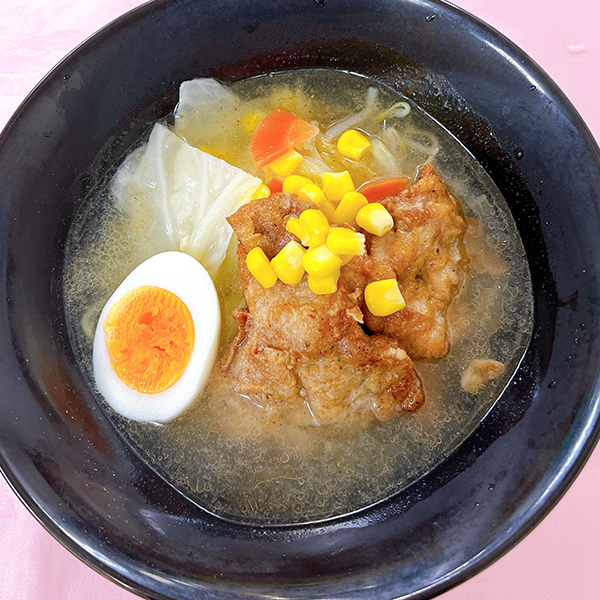
Tanmen
These black sesame dandan noodles, topped with minced meat and large pieces of fried chicken, have an addictive, throat-tingling spiciness. The rich, jet-black sesame soup contrasts beautifully with the red ground chicken, seasoned generously with cayenne pepper.
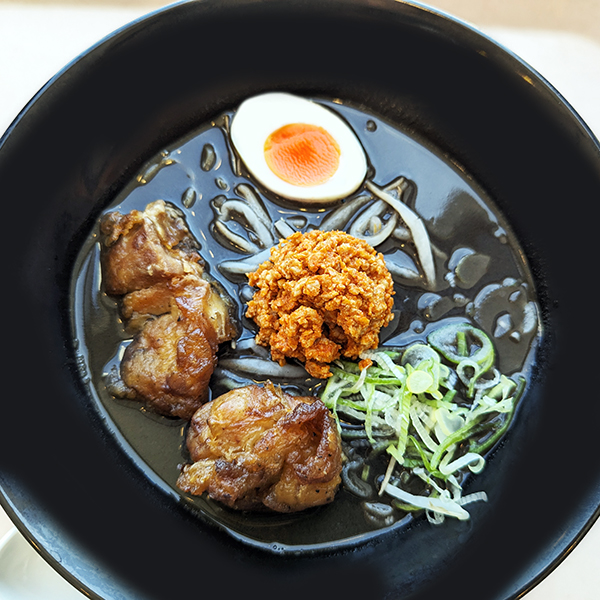
Black Sesame Dandan Noodles
On a clear day, the view from the 17th floor, where you can even see Mt. Fuji, is definitely worth a visit. Meiji University’s cafeteria is known for its great views, affordable food, and delicious food. While it’s a student cafeteria on campus, it’s open to the public, so please feel free to visit.
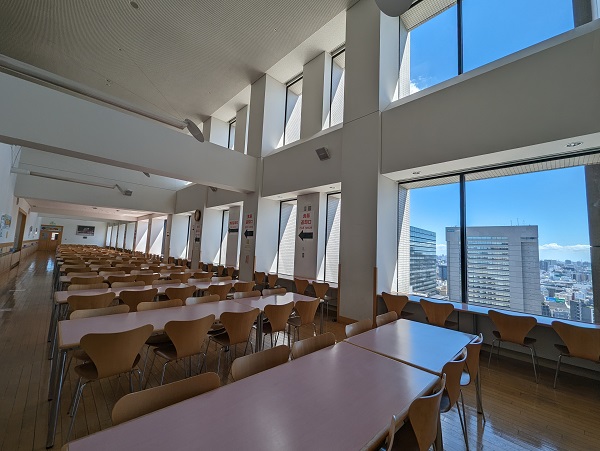
Cafeteria
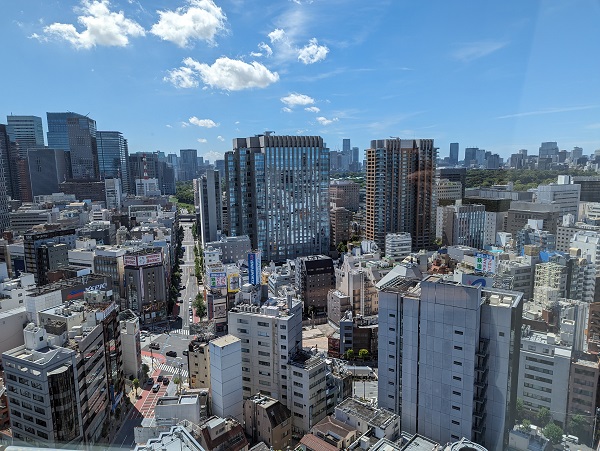
View
The reason for starting Halal service was that there was nothing available for Muslim students to eat in the school cafeteria.
At the Meiji University Surugadai Campus cafeteria, Sky Lounge Akatsuki, located on the 17th floor of Liberty Tower (Chiyoda Ward, Tokyo), you can enjoy ramen supervised by Menya Honoru. Since 2019, Akakura Hotel, which operates Sky Lounge Akatsuki, has been studying halal standards and has been working under Menya Honoru’s guidance to recreate the same flavor as the restaurant in the cafeteria. In January 2020, the cafeteria hosted a lunch event for the Indonesian delegation (JENESYS), where the ramen was served to young Indonesian Muslims, earning high praise.
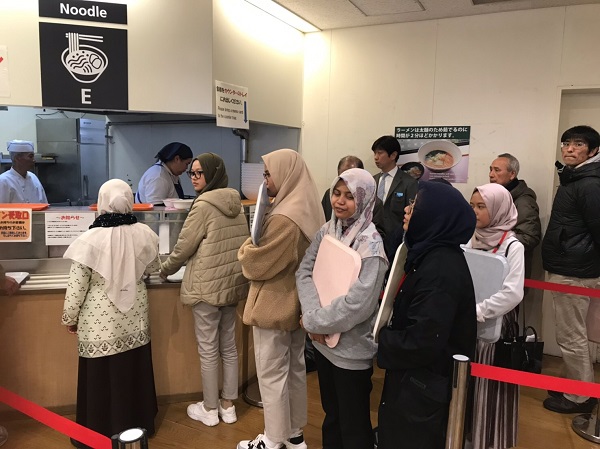
Indonesian Delegation
The motivation for offering halal ramen was that, while they had known about the presence of Muslim students, they lacked a menu item they could safely enjoy at the cafeteria. They wanted a menu they could confidently serve in the cafeteria in anticipation of an increase in Muslim international students and tourists in the future. The school also expressed a desire to accommodate Muslims, and after a consensus, they decided to make their beloved ramen halal-friendly. The ramen menu offers four types: miso, soy sauce, tanmen, and black sesame dandan noodles. All ramen dishes, as well as the fried chicken, vegetable curry, and halal curry with fried chicken, are halal-certified.
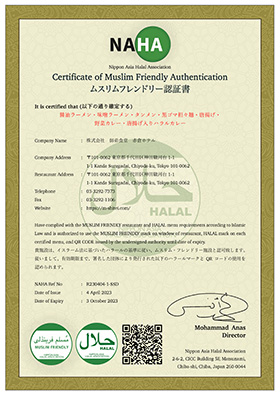
Muslim-Friendly Certification
This certification is for specific menu items and does not mean that the cafeteria’s entire menu is halal. To distinguish it from halal certification for food products, some halal certification organizations refer to it as “menu certification” or “Muslim-friendly certification.”
Based on the principle of partially separating and managing kitchens and ingredients, this certification allows the cafeteria to continue offering popular menu items while also offering halal-compatible options. For Muslims, the halal-certified mark is certainly more reassuring and significantly easier to understand than simply labeling items as “no pork” or “no alcohol.”
As times change, cafeterias, hospitals, and other facilities are increasingly being required to accommodate diversifying food needs. We encourage you to try this halal ramen, a collaboration between a long-established student cafeteria and a private company.
Supervisor / Recommender

- Halal Supervisor and Foreigner Food Coordinator (Cooking, Consulting, Public Relations)
-
Click here for introduction
I currently work as an editor, but my previous job was as a chef, with many years of experience working in hospitals, restaurants, and the food service industry. Looking back, I think my connection to halal may have already been there.
Decades ago, I once worked in a cafeteria at an auction venue. Over 60% of the visitors were foreigners. Many Muslims were present, and the venue had a mosque-like prayer space. I remember being frequently asked questions about whether the meat was halal and what kind of meat it was. At certain times, the cafeteria would become as lively as a festival. The Indian restaurant next door would generously serve free biryani, curry, and sweet drinks to everyone who came. Over 100 people, including people wearing bright red turbans, galabeyas, and traditional attire, gathered in the cafeteria, all sitting around the same table and enjoying a truly enjoyable time. Looking back, it was iftar, the end of fasting, and I understand the significance of sharing, but at the time I was ignorant of halal and Islam, and didn't even consider how to respond. They only ate the curry made by the Indians in the restaurant. As I studied halal, I realized, "I wanted to eat Japanese food, but I couldn't." I regret not doing anything even though there was something I could have done.
If only it didn't contain pork! If only it didn't contain wheat or buckwheat! I could eat it... Food insecurity is different for each person.
That's why I think it's important to learn about the differences in culture, religion, and lifestyle that underlie it, and to create an environment where everyone can enjoy delicious meals in comfort.
The desire for delicious, safe, and secure food is universal. The times are calling for people to live in new ways that transcend borders and religions. I hope that halal can be a gateway to eliminating food insecurity, contributing even in some small way to a society where people can coexist and prosper with more liberal thinking, and to global harmony beyond.
Latest entries
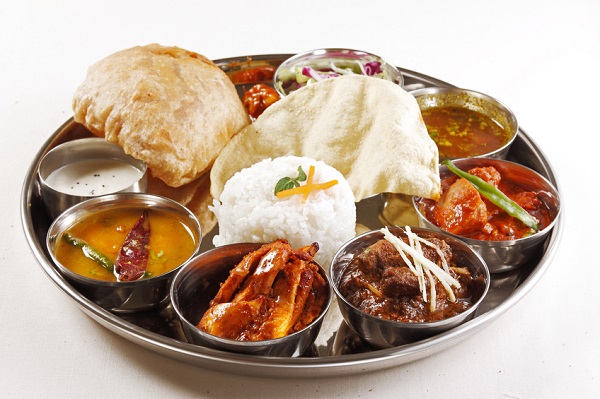 Tokyo2023年11月4日Dakshin South Indian Restaurant Otemachi Branch
Tokyo2023年11月4日Dakshin South Indian Restaurant Otemachi Branch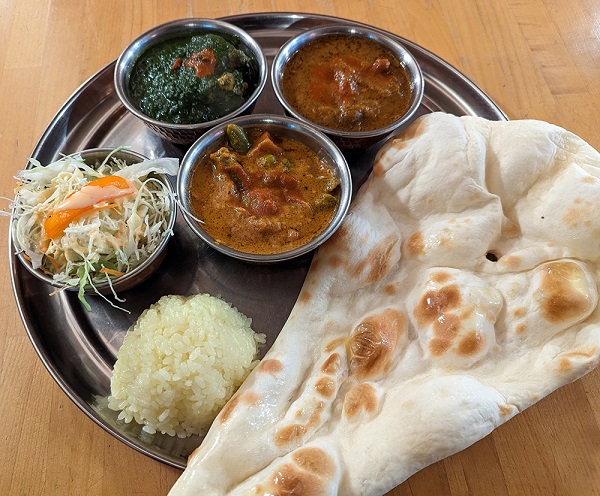 Tokyo2023年10月23日Gandhi Mahal
Tokyo2023年10月23日Gandhi Mahal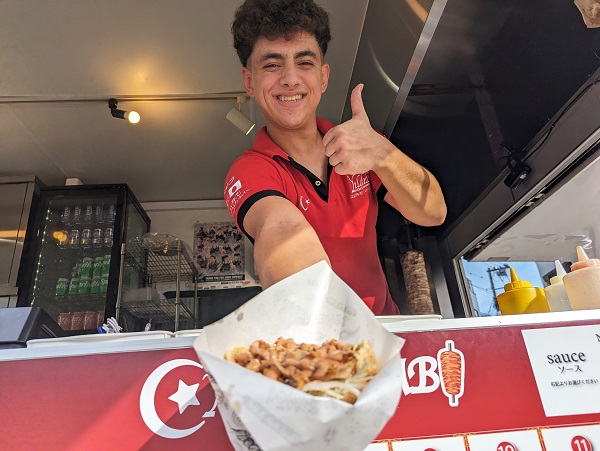 Tokyo2023年10月23日Yıldız KEBAB
Tokyo2023年10月23日Yıldız KEBAB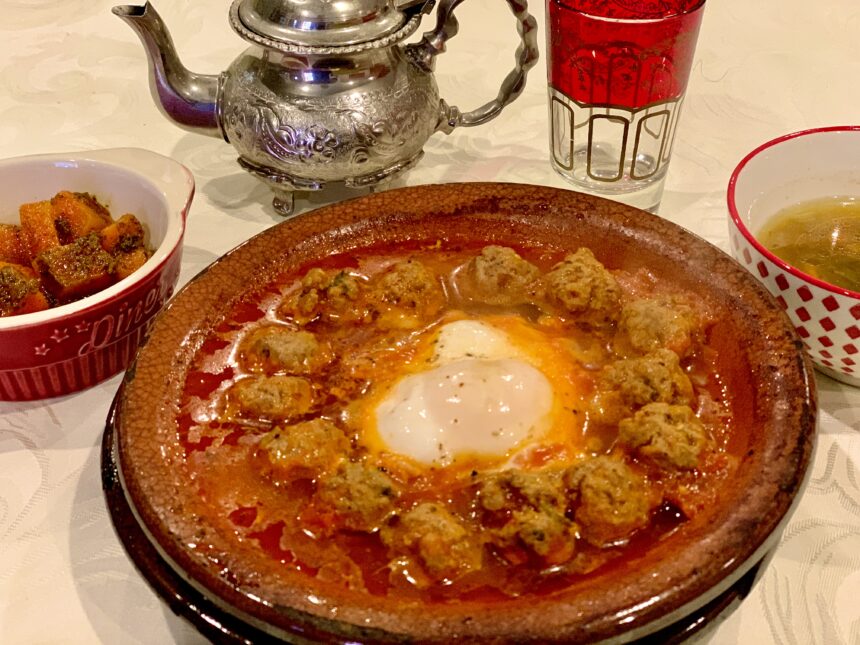 Tokyo2023年10月4日Restaurant Morocco
Tokyo2023年10月4日Restaurant Morocco

